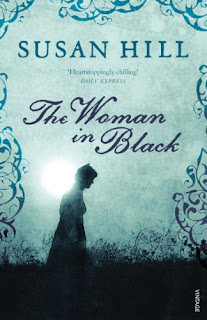I wrote in my last post that A Game of Thrones was bringing out a rather vicious side to me, when I expressed a wish for Viserys “still not king” Targaryen to come to “an ignominious, snivelling end.” This came a lot sooner than I had expected, before he’d even crossed the seas to the Seven Kingdoms – a really horrible, shocking death. But it was very satisfying. At first we had seen Viserys through his sister’s eyes – a bullying brute with a terrible temper, who ruled her by fear. But Daenerys was a fourteen-year-old girl. When she is wedded to a chieftain of the Dothraki, a culture of horse-lord warriors, while they see Viserys as I did: a bratty, spoilt would-be king of a foreign land. Daenerys, on the other hand, just grows in authority to become a stern queen. A Game of Thrones is rife with sexism, especially in the Dothraki culture, but Daenerys won’t have any of it. I’m not talking about “sexism” as is often an accusation in fantasy: a mostly-male cast with women only as wives and maidens, or a conservative view that men should be men, women should be women and small furry creatures from Alpha Centauri ought to be small furry creatures from Alpha Centauri. This book is full of out-and-out misogyny, women are treated as men’s property to do with what they will. There were several instances of me wanting to lob A Game of Thrones across the room, and I would have done if I owned the copy. So the fact that Dany says NO. This is Not Okay comes as a relief, and perhaps makes me like her more than someone else with similar levels of character development, due to my anger at what had come before.
One of the few things I thought I knew about this book before reading it was that “someone gives birth to dragons,” but I was sure I’d grabbed the wrong end of the stick there and embarrassed myself by announcing it. But I was much closer than I’d realised. It took me longer to really get attached to Daenerys’ story, because she was more or less unconnected with the other stories told in this volume, being the other side of the ocean. But the last couple of chapters were wonderful storytelling: twisty and devastating and brilliant. Martin broke the rules of storytelling by setting up a great prophecy about a future character – and then killing off the character at birth. So what was the point of that whole subplot? Why didn’t the crones predict that? I found that frustrating and amazing at the same time - I love stories that defy conventions of what may or may not happen. With Martin, it seems there is no may not. I was more impressed by the whole subplot about exchanging a death for a life, with its twists and betrayals, than the final image of Daenerys emerging from her husband’s funeral pyre carrying three baby dragons, as a red comet streaked across the sky. Which is a pretty impressive image.
Next up: A Clash of Kings. The Seven Kingdoms are certainly at war now, with about six contenders for the Iron Throne, some of whom are sympathetic, some decidedly not, and the one currently seated upon in it a nasty piece of work indeed. I expect this war will rage on throughout the entire series – the five books so far and however many are still inside George Martin’s head. Battle scenes don’t interest me much, and another six volumes (books 3 and 5 are split in two in their paperback format) of battle scenes fill me with trepidation – but I can tell that there is enough story to fill the pages alongside the “swording and politics.” I’ve reached the end of everything I’d been spoiled about, except for one phrase that makes no sense out of context anyway. I have absolutely no idea what to expect, except that it’s going to be awesome.
















